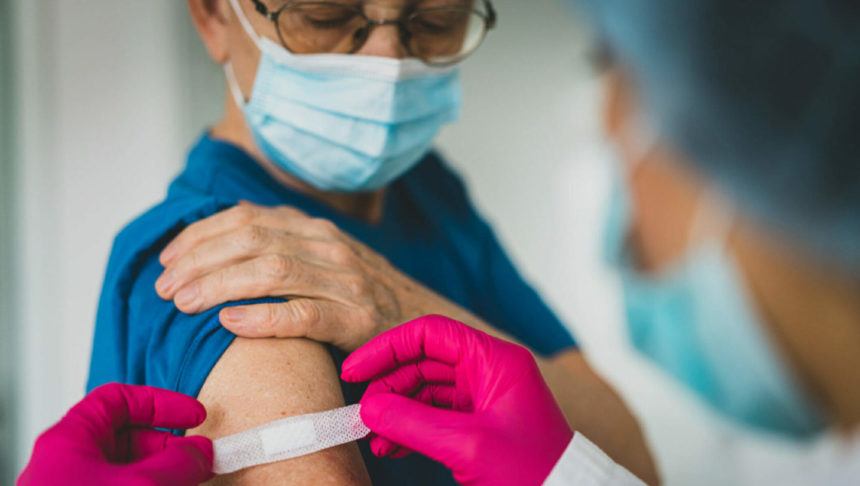
Despite high uptake in the initial series of COVID-19 vaccines, older adults are not flocking to get the latest COVID-19 bivalent booster shot.
As of Nov. 2, only 23% of the U.S. population aged 65 years and older had received an updated, bivalent booster dose, while 93% had completed their primary series of shots, according to the Centers for Disease Control and Prevention.
Nursing home residents
Meanwhile, the rate of bivalent booster uptake is less clear for nursing home residents but appears relatively low as well. The national percentage of residents who are “up-to-date” on their vaccinations per facility was 41%, as of Oct. 23. The CDC’s definition of “up-to-date” includes completion of a primary series of shots plus receipt the most recent (bivalent) booster dose, or having completed an initial vaccination series less than two months ago. Meanwhile, approximately 87% of residents per facility have completed their primary series of shots.
The low booster shot numbers are worrying health officials as the United States heads toward a projected winter surge in cases. Officials have responded to the apparently low interest in these vaccines with campaigns to educate the public and get them to vaccination sites or bring the vaccination clinics to them.
The Biden administration has launched its #VaxUpAmerica Family Vaccine Tour, which will include pop-up vaccination events at settings ranging from NASCAR races to nursing homes and community health centers, officials said.
Surgeon general weighs in
As part of this outreach, Surgeon General Vivek Murthy on Tuesday led a webinar that urged advocates for older adults and people with disabilities to encourage more shots in arms as they engage with the community. The bivalent boosters, made by Pfizer and Moderna, contain ingredients that thwart both the original virus variant and the newer and more dominant omicron BA.4 and BA.5 subvariants.
“We’ve saved hundreds of thousands of lives due to the fact that we have better tools available … and those include the vaccines themselves,” Murthy told webinar attendees. Antiviral pills and monoclonal antibody treatments have reduced severe outcomes as well, he added. “The challenge is to sustain that protection, especially as winter comes.”
The updated bivalent shots not only offers that protection, but there is new evidence that COVID-19 vaccination also lessens the risk of getting long COVID, he said. He urged caregivers and advocates to focus on vaccine education for the people at highest risk, namely seniors, those who are immunocompromised and those who have multiple health conditions. Listeners were referred to the website COVID.gov to access toolkits that provide education and guidance.
Booster timing
Individuals are eligible to get a bivalent booster shot if they’ve had their last COVID-19 vaccination two or more months ago, Murthy reminded webinar attendees. He recommended that people who have been infected with COVID-19 wait about three months to get the booster, and that recipients should also be encouraged to get their flu shot at the same time if eligible.
The surgeon general’s call focused on vaccine access for older adults and people with disabilities, and speakers offered encouragement to those on the ground who are promoting uptake in these potentially vulnerable groups. Alison Barcoff of the Administration for Community Living (ACL) noted that most people in these groups have not yet received the bivalent vaccine.
Turning the tide
“The good news is that most older adults and people with disabilities got their initial vaccine series, and we even saw really great rates for the initial booster,” said Barcoff, the ACL’s organization’s acting administrator and assistant secretary for aging. “But the not so good news is that most [people in these groups] have not yet gotten the latest bivalent vaccine.”
“We can work together to turn that around, and work to increase the number of people who are up to date with their vaccines,” she told attendees.
Related stories:
As respiratory diseases spike, CDC urges clinicians to offer vaccines, antivirals
U.S. extends public health emergency, buying LTC a bit more time




